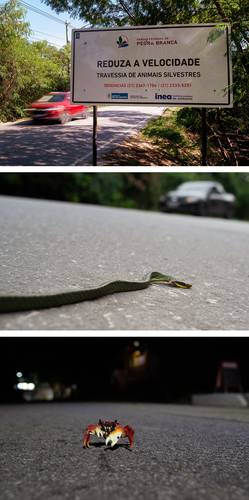In the vibrant city of Rio de Janeiro, a groundbreaking project is harnessing artificial intelligence technology to mitigate wildlife collisions on roads in Brazil. According to the Brazilian Center for Studies in Road Ecology (CBEE), an estimated 475 million vertebrate animals lose their lives each year due to collisions with vehicles across the country. Some of the most vulnerable species include the capybara, armadillo, and opossum.
To combat this alarming statistic, Gabriel Souto Ferrante, a student at the University of Sao Paulo, has been developing an innovative system that leverages computer vision to detect and alert drivers to animal presence on the road. In collaboration with the Institute of Mathematical and Computer Sciences at USP, this cutting-edge technology aims to protect endangered animals such as the puma, giant anteater, tapir, maned wolf, and jaguarundi.
Implementing this technology effectively requires support from companies responsible for maintaining roads. Access to cameras along routes and safety equipment will enable real-time alerts to both drivers and road management companies. Additionally, this technology could enhance safety for humans who are also at risk of accidents caused by animal crossings.
In recent years, Brazil has implemented various strategies to minimize the impact of habitat fragmentation caused by roads on wildlife populations. Ecological corridors and green bridges have been constructed to facilitate movement between isolated habitats. However, these measures are limited in their effectiveness given Brazil’s vast size. Traditional road signs warning of animal presence have had minimal success in altering driver behavior. More comprehensive efforts are required to safeguard wildlife while ensuring safe travel for both animals and humans alike.
The Urubú System, a citizen science social network initiated by CBEE coordinator Alex Bager, has played a crucial role in collecting data on wildlife roadkill throughout Brazil. This information has contributed significantly to public policies and legislation aimed at protecting animals from deadly encounters with vehicles
